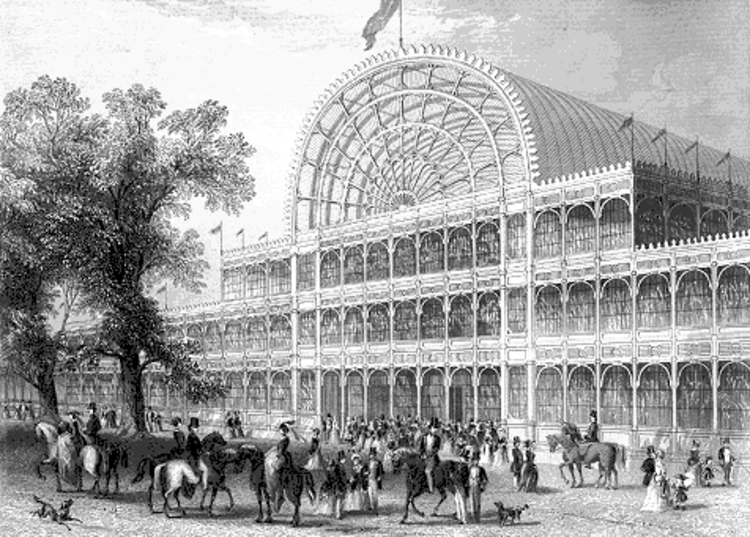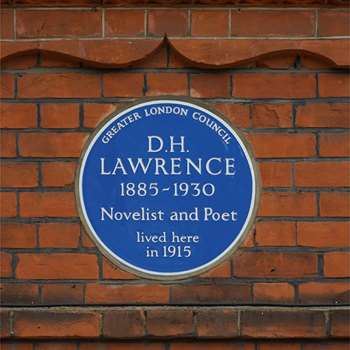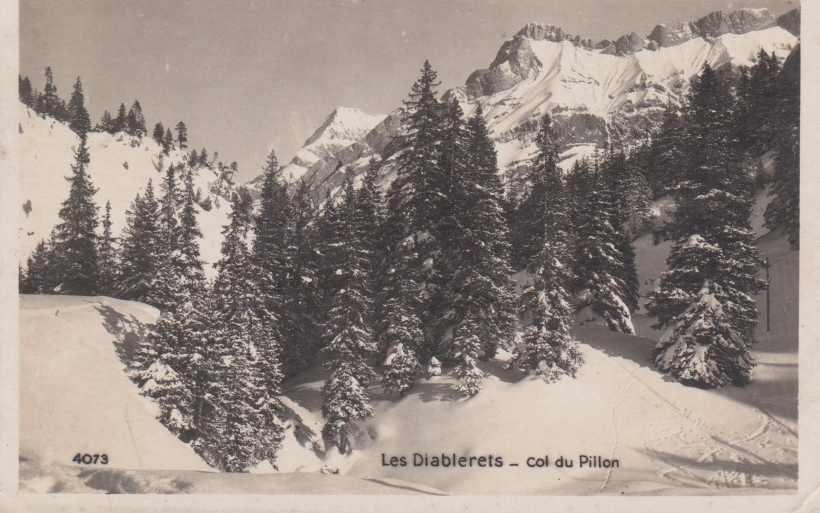Bernard Richards – Emeritus Fellow of Brasenose College, Oxford, who taught English at the College between 1972 and 1996 – interviewed English novelist Ian McEwan in 1992. The interview was first published in The English Review, and is reproduced on my blog by Bernard Richards’ kind permission. It centres on the perennial topics of sex and violence, and on their particular topicality then and now.
FACE TO FACE
Ian McEwan and Bernard Richards
Sex and violence are dominant features of the art of our time. In this interview with Ian McEwan Bernard Richards asks the writer how he regards the connection between them.
B.R. Sex and violence: everywhere you look in contemporary culture, and especially perhaps the culture of films, there seems to be a lot of it about, sometimes separate and sometimes together. It seems to dominate the imagination of everyone: film makers, novelists, poets, audiences alike. I wonder if you think it has got more acute as an obsession lately, more prominent, more inescapable ?
I.M. I think inescapable is maybe the key. Certainly talking about violence, I don’t know whether our capacity for violence has grown, but certainly our ability to inflict it technologically has grown. I think the growth of the city, industrial culture, all those words like alienation spring to mind, make a perfect backdrop for violence. And it doesn’t surprise me that films especially and popular culture thrive on it. Partly because it’s easy to do. It’s easy to watch in some immediate sense. It’s easy to portray. The first thing you can always get actors to do is have a row in a warm-up in a workshop.It always struck me that when East Enders, for example, came on, I used to discuss it with my teenage daughters. What struck me was that most of the time the characters seem to be rowing.
B.R. Wasn’t the first episode, which I didn’t see, opened with someone putting his hand through a glass window or something like that ? The very opening shot ?
I.M. I didn’t see it, but it fits my thesis. I remember saying to my daughters after a conversation with Richard Eyre, in which he said a rowing scene is easy to do, there’s opposition, there’s one thing against another. And it’s simple to understand and simple to do. And maybe that is also the key to the representation of violence in one superficial sense. But I do think the background is that it is a reality of life, and it is a great fear of all urban dwellers of being set upon by those who have got less than they have. So I think it is inescapable. How we compromise our impulses in a civilization, how we manage to live together without hitting each other, when we fail to restrain ourselves from hitting each other, what the consequences of that are: whether we get away with it or not. Very quickly in a few building blocks you would have most Hollywood plots. So yes I think in that sense violence has a kind of inescapability. And thinking in somewhat larger terms, for my generation, born more or less mid century, growing up in the shadow of the Second World War and a shadow that seems to lengthen somehow, the echoes, the aftermaths, the reverberations of that violence and cruelty, that extended cruelty in the Holocaust is a strange other side, the other dimension of actually what has been an unprecedentedly peaceful and prosperous time in our corner of north western Europe. It is our demon, the thing that stands just behind our shoulders. And it certainly has been a power and a force, a focus, in my work for some time now. So I think that too. We do live fairly recently after an extraordinary eruption of human cruelty and violence, and that itself was preceded in European civilization by another eruption in the First World War. I suppose we think our peace is uneasy and I suppose it’s inevitable that writers will examine that uneasiness.And that’s to put it on the line.
B.R. It is sometimes said that people during the First World War didn’t know what was going on in the trenches on the Western Front. I must say I find that hard to believe, because there were enough photographs actually coming out for anyone with any imagination at home to have imagined it. I wonder if that hasn’t been overstated. But at the same time there is the presentation of it, I am talking now about real violence and real wars, I am talking about pictures like that [alluding to a picture of the Gulf War], coming into our living rooms virtually every night of the week, dreadful scenes, dreadful scenes of reality, which I suppose in earlier generations it might have been possible, if you weren’t particularly imaginative, to filter out.
I.M. I suppose if there’s a strong collective belief in something, some analgesic, as there certainly was at the time of the Great War, the glory of dying for one’s country, the sweetness, even, then it takes a while for that to be eroded, and even with the Vietnam war, which I suppose was the first war in which television images came right into the living room with extraordinary immediacy, it still took a couple of years to turn everyone around – nor just hippies and students and radicals. I suppose fixed ideas are slow to shift. We started to talking about violence and sex, but already we are talking about war.
B.R. Well we are in the public domain aren’t we at the moment.
I.M. And we’ve moved. And even as I am speaking of this I feel that we stand at a pivot and we could move into the personal, because the other realm is the immediate violence of say domestic life or the private life, and it’s here where the other matter of sex occurs. I suppose the sexual relationship in the novel has always been a central concern, it has always been concerned too with issues of power. Perhaps more nakedly as taboos have dropped away, and writers have become more aware that the field is wide open. They can go anywhere and the reader is willing to come with them and I think this has opened the novel up extraordinarily to explorations of violence within relationships.And I suppose particularly of violence from men towards women.
B.R. We don’t have to forget Lawrence’s ‘Tickets Please !’
I.M. Yes. A wonderful story. Sure. I remember my English teacher reading that story aloud to me and maybe a couple of other boys. It had a great effect upon me actually. I saw the extraordinary attraction of writing about revenge, how cathartic that in itself could be.
B.R. It’s just occurred to me, I hadn’t thought of it until this minute, but actually at the end of ‘Tickets Please !’ after they’ve attacked this poor bus conductor, one of the girls laughs, which is the same reaction that breaks out in The Innocent, after the murder, it generates that funny nervous laughter.
Maria started laughing, horrible fall-about laughing, full of fear. He could have joined in. She did not try to meet his eye, the way laughing people do. She was alone with it. She was not trying to stop either. If she stopped she would have started crying. He could have joined in, but he did not dare. (The Innocent)
I.M. Yes, well I…. The image I suddenly had was the image in the novel I have just written, Black Dogs, where a man has a kind of revenge on another man who has hit a child, and takes him out in the street and whacks him on the face.
But when he goes back inside into the restaurant what he sees is a waitress comforting the child in the grip of a great happiness. I think the honest way to write about violence is to recognise it within yourself. And I think the first thing that has to be done …. No one should escape whipping. It could well be that the scepticism of the novel form, at its best, the way it will hold back from taking sides makes it an ideal form for exploring violence and cruelty, because it can often take the part, or at least take half a pace towards taking the part, of the perpetrator, rather than simply taking a moral stand on behalf of the victim.(The BlackDogs)
B.R. The reason I think I am anxious to pursue this discussion is because I am slightly worried that in our culture, and I expect you’ll agree, there are a certain number people, both writers and film-makers, who basically are exploiting it for various dubious reasons, commercial and other things, and sometimes you wonder whether they have got a full imagination of what is involved. They’re obviously interested in a certain kind of external technical brutality. Whether they have taken on board the full imagination of what the psychic effects are I don’t know, but I sometimes wonder if they have. I sometimes wonder if the involvement with special effects, which is a kind of technological challenge, doesn’t in fact bypass the kind of scene which you have in your novel Black Dogs, which is certainly psychically rich and thought out.
I.M. But the interesting thing, surely is why precisely is this violence commercial ? Why should that form of representation in the world be the one that can so easily attracts and draws in the crowds, and clearly has done so for a long time. The people who packed in to watch The Revenger’s Tragedyor a Roman Circus have a lot in common with the modern audience going to see Terminator 2. And I mind less the fact that there are going to be artists who exploit this, or operators who are going to exploit it than what it is in all of us that makes people so well placed to do this. We clearly…. We are uncomfortable apes. We have at our back clearly a capacity for cruelty and violence that must have had some necessary function.
B.R. The sixty four thousand dollar question is whether seeing these representations saves us from the wish to commit them, in some cases because we might be disgusted or because we’ve seen them externalised and now we don’t feel the need wish to do them ourselves or whether they can in fact form an encouragement, an inducement, a deadening of the taboos against doing it.
I.M One can only speculate, but I am pretty sure that it makes no difference either way. I’m very sceptical when someone claims to have perpetrated some violence because they saw it on television. If they were so near the edge and were tipped so easily then clearly they were already a case. I think these representations, either in high art or in the lowest television, echo …. they find a willing reflector. We seem to want to have it. And I think the difference between exploitative representations and art is that art will do two things at once, or do two things invisibly at once. One is to represent it and represent it well, but also trail a kind of discussion and query an investigation which will produce some other element round the edges of that narrative, which will cause the reader or the watcher to investigate himself or at least come away unsettled, not only by the violence but by the fact that he was drawn. An artistic representation of violence, or for that matter of sex, has to have this dual element of query, of pursuit of some larger meaning, otherwise it simply does become a very cheap way to hold people down.
B.R It is very striking in The Innocentthat Leonard does not seem to have been reading many novels. In a way the experience he gets himself into, the cultural signals that help him along his way are, in a sense, the pop music of the time.
If it was Bill Haley and the Comets, and especially if it was Rock Around the Clock, there would be shouts for more volume, and players would drift towards the window. … To Leonard, the unrestrained exhortations to dance for hours on end seemed puerile. It was a counting song girls with a skipping rope might chant in the playground. It was Hickory, dickory dock, it was One potato, two potato, three potato, four. But with repetition, the thumping rhythm and the virile insistence of the guitar began to stir him, and he moved from hating the song to pretending to hate it. (The Innocent)
Would he have been different, would his experience have been different if he had read quite a lot of novels, and especially maybe the kind of novels that are being written now ?
I.M. Well I don’t think so. This is the old chestnut of George Steiner’s [in After Babel], but one of the worries we now have about this magnificent civilization the European civilization is that right in its heartland was perpetrated the most extraordinary crime against humanity, coming right out of the culture of Goethe and Beethoven. And the stories of Camp Commandants listening to Schubert must cause us to be very careful when we claim that novels or art generally have a profound civilizing effect.
B.R. I am not in a sense thinking of art’s ‘civilizing effect’. I am thinking more of its giving one, so to speak, an imagination of the terms in the full spectrum, let’s say, with the good at one end and the bad at the other. It may not make you better, but it gives you, let’s say, a kind of moral and imaginative literacy, in which….
I.M. To do bad in…
B.R. In which do bad as well as good, that’s right. So that Leonard stumbles into a discovery almost of what life is like, but that if he had read more novels he would have a bit more prepared. He would still have had of course to make decisions about his behaviour, so we are back with your point, which I agree with, that…
I.M. He wouldn’t have been quite the innocent I wanted him to be perhaps.
B.R. Yes. So what I am getting round to is wondering whether the net result of this tremendous outbreak since the war of frankness in literature, film and artistic representations has in fact extended that imaginative repertoire somehow, for all of us – at least all of us who have come in contact with these forms of representation.
I.M. Well I was just thinking, as a footnote, that Raskolnikov [in Dostovesky’s Crime and Punishment]was a student and presumably he read books before page 1. He didn’t have much time after that. I don’t know… I wonder how it will all look in two hundred years time if people are still studying literature and they might see in the twentieth century just one strange turn of the screw that after Freud it seemed as if we could define ourselves in an important way in sexual terms, and that maybe this was a passing thing. It took up ninety years of our time, but that as Freud gradually receded from a central position in the culture and as other concerns, spiritual or environmental or other ways of representing the core of our humanity took hold and we no longer felt in reaction to the great sexual ignorance that characterised not only the nineteenth century but other centuries too, that it might seem just like a blip on the road, the map, of literature and an interesting one too, causing the most extraordinary things from Lady Chatterley’s Loverto [Philip Roth’s] Portnoy’s Complaintand Ulyssesa great lid has been lifted, but maybe it will settle.
B.R. Well already people are claiming, aren’t they, that it will no longer do to say something like, ‘This business man’s secret drive really is sex,’ because it might turn out that this business man’s secret drive will be something like money and power.
I.M. It might be business.
B.R. Yes business.
I.M. ‘This sexual man’s realdrive is business.’ Well have you not noticed that when societies live under tyrannies and those tyrannies extend to sexual matters too and then those tyrannies recede the first thing that happens is that there if a fantastic blossoming in freedom in pornography of the crappiest kind. It happened when Franco left Spain and when communism left Eastern Europe, Poland and Czekoslovakia. It wasn’t as if everyone was racing to read Kafka; they were racing to read Hustler. And that I think is a brief moment actually. It settles down, and the people who were always going to read Hustlerfor the rest of their lives will do so, but it is almost as if something has to be flexed, as it were, before something settles down. I’m not trying to dismiss and encapsulate the whole of twentieth-century literature but it will be interesting to see, once we have lived with a high degree of sexual frankness in our literature and film for a couple of generations, and once we have come to doubt Freud’s positing of sex and sexual identity as a synonym of identity itself, whether we won’t we find something quite bizarre about our fixations. Because I’m quite sure that people will find in our society a great paradox: that we have a literature that calls itself sexually frank, but we have a society that is still profoundly sexually ignorant. And whenever you read the statistics of people’s questions about Aids…. I mean, in fact Aids has been rather like Mass Observation in the Second World War: it has thrown up a quite fantastic chasm of sexual ignorance in the population at large. And I saw a survey that was talking about how most parents, over 80 %, felt that they could not discuss any kind of sexual matter with their children whatsoever and wanted schools to do it, and this was at a time when schools were being pressurised by the Government not to do it. So I don’t know really what I’m saying: that either our obsession with sexuality is a very surface matter and it will pass, and it won’t have made much difference to the vast ignorance that most of us contend with, or we’ll slowly refine our expressions of frankness and sexuality and it really will take hold and people will move into clearer and deeper emotional understandings of each other through it. Somehow I doubt that.
B.R. But do you think that books like yours are forcing people to acknowledge the violence within themselves ? And then when they have acknowledged it though should they somehow suppress it and control it and manage it ? Because after all in The Comfort of Strangers the gap between those two couples is alarmingly narrow isn’t it ? Although of course the gap is of crucial importance; you’ve got one couple on one side and one on the other. There’s one point when Colin and Mary both fantasise about the cruelties and the punishments they could enact on each other.
Mary uttered her intention of hiring a surgeon to amputate Colin’s arms and legs. She would keep him in a room in her house, and use him exclusively for sex, sometimes lending him out to friends. Colin invented for Mary a large, intricate machine, made of steel, painted bright red and powered by electricity; it had pistons and controls, straps and dials, and made a low hum when it was switched on. Colin hummed in Mary’s ear. Once Mary was strapped in, fitted to tubes that fed and evacuated her body, the machine would fuck her, not just for hours or weeks, but for years, on and one, for the rest of her life, till she was dead and on even after that, till Colin, or his solicitor, switched it off. (The Comfort ofStrangers)
I.M. And their fantasies are all about power too and helplessness.
B.R. And is it better for them to have them in the open and express them ?
I.M. I think it is.I suppose I believe life is a long process of trying to become more conscious, and literature is one part of that development, that process by which people can become more actively sensitive to themselves and the world they’re in. So that I think self-knowledge is good in its own right.
B.R. I was very struck at the end of Black Dogsthat there was one passage when you were talking about the accumulation of little heroisms that make things better that seemed to me not far from George Eliot’s concept of what she called the Religion of Humanity.
That kind of thing, that gradually a series of little heroic acts would finally build up and produce something worthwhile, even though it was not as spectacular as the pulling down of the Berlin Wall or something of that kind of thing. (Black Dogs)
I.M. That itself is now an act, joyous as it was at the time, that is now looking like perhaps just the beginning of a different kind of sad melody.
B.R. Yes, yes.
I.M. Another kind of pain has begun.




